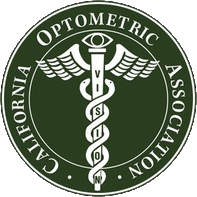IEOS received the following letter from Bill Howe, Executive Director of the California Optometric Association (COA), clarifying the confusion on AB 1092.
"There seems to be widespread confusion about California Assembly Bill 1092, what the measure would do and COA’s involvement with the legislation. COA has never supported the measure; we are neutral.
The bill is only applicable to VSP’s required anti-fraud program which is not the same as the routine audit program. In other words, this program goes after suspected egregious actors committing fraud, not bookkeeping or billing errors. To put it in context, as the attached bill analysis written by the California Senate Health Committee analyst states, VSP investigates only about 100 fraud cases per year nationwide out of the millions of reimbursement claims it receives.
The bill was introduced because the state Department of Managed Health Care (DMHC) determined that statutory authority was needed for VSP to employ statistical sampling in its anti-fraud investigation methodology which has been in use for almost two decades and is used by many government and commercial carriers in combating fraud.
COA’s role has been to make sure the language of the bill protects optometrists from unfair practices. Upon recommendation of COA’s consultants, many of whom were the state regulatory agency heads that oversaw VSP – including the DMHC, we were able to convince VSP to put additional language in the bill that requires them to use a statistical method that is consistent with widely recognized international audit standards when recovering payments from doctors who committed fraud. This now holds them to a higher standard. We were also able to convince them to put in additional language that requires VSP to use adequate sample sizes that are random when calculating repayment. This means that VSP won’t be able to use inadequate sample sizes that could inflate recoupment amounts. These amendments put additional restrictions on VSP’s statistical methods for recoupment and provide greater protection to any doctors who are under fraud investigation...which I hope is not common among our members.
Below is an overview of the measure as stated in the attached bill analysis referenced above:
-
Requires a health plan’s statistically reliable method, and how the plan intends to utilize that method to determine recovery of overpayments made as a result of fraud, to be submitted to, and approved by, DMHC as elements of the plan’s antifraud plan established and approved pursuant to existing law. [Emphasis added.]
-
Requires the plan’s utilization of a statistically reliable method to help protect and promote the interests of enrollees and to help ensure a stable health care delivery system.
-
Requires the statistically reliable method to be consistent with direction provided by the International Standards for the Professional Practice of Internal Auditing and the guidance provided by the International Professional Practices Framework guide, which are both produced by the Institute of Internal Auditors. [Emphasis added.]
-
Requires a health plan to provide a written notice of suspected fraud pursuant to its antifraud plan to a provider that includes, at a minimum, all of the following:
a) A clear description of the plan’s statistically reliable methodology that ensures that the sample size used to calculate the repayment amount is consistent with the professional guidance provided in the 2009 edition of the American Institute of Certified Public Accountants’ Audit Sampling Considerations of Circular A-133 Compliance Audits;
b) A clear description of the universe of claims from which the statistical sample was drawn and, if different, the universe of claims upon which the statistical analysis was applied to the recovery amount; and,
c) A clear explanation of how the plan’s statistically reliable methodology was utilized in the plan’s findings of suspected fraud; and, for each of the claims in the statistical sample that was utilized in the plan’s findings, the claim number; the name of the patient; the date of service; the date of payment; and, a clear explanation of the basis upon which the health plan suspects the claim is fraudulent. [Emphasis added.]
A violation of the statutes governing required antifraud programs by health care service plans and specialized health care service plans, including VSP, is a crime.
On the message board OD Wire, there has been some incorrect information posted about the bill. Respectfully, the measure does not apply to all disputes and there has never been a judicial review standard for these fraud investigations. Existing law provides that all health care service plans and specialized health care service plans, which is what VSP is, have in place a dispute resolution process for providers and to report annually to DMHC on the prior year’s dispute program. The bill contains provisions allowing the provider to appeal the initial VSP findings.
A few other things:
VSP's standard contract has always been written to be interpreted under California law. That is a typical provision in most contracts to put legal disputes into the jurisdiction convenient to the company. However, such provisions don't preempt all laws of the doctor's state. A state law requirement for a state-based dispute resolution process would apply despite VSP's attempt to move the dispute to California law; in other words, states that mandate their own dispute resolution process will take precedence.
Medicare and many commercial payers use statistical extrapolation all the time in their anti-fraud investigations. While doctors may not like it, it is difficult to say that it is unreasonable. Again, these payers are going after health care providers that consciously commit fraud. See the following link: http://www.physiciansadvocacyinstitute.org/Portals/0/assets/docs/Top-Ten-List-Revised-branded.pdf
While we may not like arbitration to settle claims, to say that no body of law allows or requires it is not correct. Last month the U.S. Supreme Court upheld arbitration in millions of employment contracts deferring to federal law favoring arbitration over litigation. [Emphasis added.]
You can view the measure at the following link: http://leginfo.legislature.ca.gov/faces/billNavClient.xhtml?bill_id=201720180AB1092.
Please contact Kristine Shultz at 916-266-5027 or me at COA if you have any questions.
Bill Howe
Executive Director"


Comments